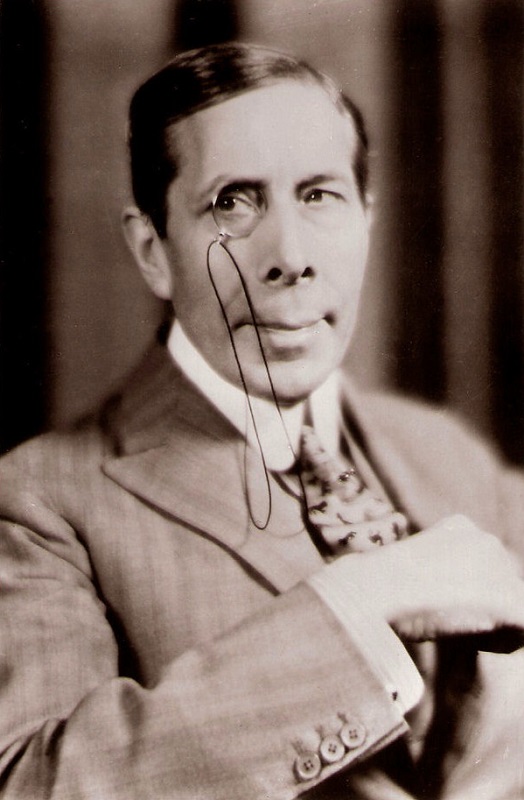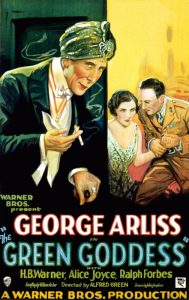

1929-30 – George Arliss
Disraeli
George Arlis was nominated, and won, for two different films this year, the other being The Green Goddess. Both films were coming right out of the Silent Era, and Talkies were still trying to learn the new medium. The actors spoke slowly and they over-enunciated every word. They spoke in almost sing-song tones, and it is unfair to judge the acting by modern standards. So if you watch this film, you have to keep that in mind. It was simply the style of the time. But I think he did a fine job, though perhaps no better or worse than his competitors.
Before I cover what I liked, let me just mention one thing that I didn’t. Does the actor apply his own makeup, or was that someone else’s job? Whoever was responsible, the makeup on Arliss was terrible, and not because it made him look like a cross between the old silent film version of the Phantom of the Opera and a circus clown. If they were trying to give him the look of a historical figure, fine. But the fact is, it looked like makeup. It looked unnatural and creepy. That makeup job might have been good for the stage play that the film was based on, but in front of a film camera, it looked awful. And he was the only one. None of the other actors had the same problem with bad makeup.
But as for his acting, his presence, the character that he created, and the emotional range he was able to display, I think he did a good job. I really liked the way he interacted with his wife. The love in his mannerisms was genuine and he played it very sweetly. But I also liked the way he played excitement, cunning, despair, feigned sickness, and sorrow, all with equal skill. It was clear that he knew how to act, and so I think his Oscar was well-deserved. He still had that silent film practice of overdoing the emotions and facial expressions, but because of his mastery of his craft, it actually seemed to work in his favor. And on top of all that, he played a nice guy. He was likeable, which can go a long way, despite his disturbing appearance. Disraeli was a character that was kind to everyone, and yet deeply passionate about his convictions, which, I suppose is why the real Disraeli is such a revered figure in British history.

1929-30 – George Arliss
The Green Goddess
This was one of two films in 1930 that earned George Arlis his Oscar. The other was for Disraeli. In both cases, he played the same role on the Broadway stage before starring in the Hollywood film. But The Green Goddess had the distinction of being adapted for film before. Again, Arliss played the same character, the Raja. So he did the stage play, and two silent films, playing the same role each time. Apparently, audiences didn’t want to see anyone else play the part.
I found it interesting that though The Green Goddess was filmed first, Arliss, himself, felt that Disraeli was a better film to be his sound film debut. Unfortunately, this was a difficult film to watch, not because of the content of the film, but because the film itself is so old. The picture image was often so out of focus, faces were blurred. You could sometimes see the flickering of the film projector light. The dialogue cards were often unreadable, or just missing. But every now and then, Arliss would have a close-up shot, so you could see his face clearly.
Now, you might say Arliss was miscast. He was a white guy playing an Indian Raja. But I suppose, that didn’t mean as much back in 1930. However, he was, by no stretch of the imagination, a native Indian. But I suppose he played his part well enough, and I suppose he did a good enough job as an actor. But being a silent film, he had the overexaggerated facial expressions that were the style for the times.
Throughout the entire movie, the Raja was portrayed as the bad guy, the heathen Indian. He is a murderer, who who tries to force the pretty girl to marry him. In the film’s climax, he is ready to sacrifice the surviving white people to the Green Goddess. But when the British Air Force shows up to save the day, not only does he escape punishment, he shrugs it all off, as if to say, ”Oh well… You win some, you lose some.” It took all the teeth out of his villainous plots. But that wasn’t the actor. It was the script, and Arliss made the evil Raja seem more sympathetic in that moment.













